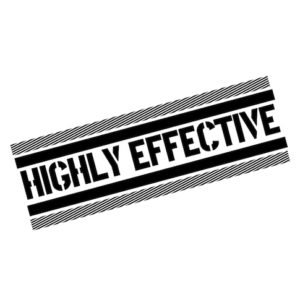Full disclosure should be a requirement for the insurance industry. Insurers and their respective agents should volunteer critical information to current and prospective clients.
While the law does not demand that agents reveal their commission structures, while it does not mandate that clients know about the bonuses agents may receive for selling a particular policy and the orders imposed by one’s bosses to do so, the public should nonetheless be aware of these things.
We, as agents and industry professionals, need to pull back the curtain on actions that most people do not know exist – and directives that these same individuals would want us to report, or to cease doing.
In this spirit of full disclosure, allow me to follow my own advice. Permit me the chance to explain why full disclosure – of everything – strengthens people’s collective perception of the insurance industry.
If clients understand how our profession works – if, in the process of recommending that a client buy a specific policy, an agent also states that he or she is eligible (from the sale of this policy alone) for perks like a Caribbean cruise or a month-end raise – then whether that individual purchases or rejects a policy, there can be no confusion about process.
Put a different way, honesty is, indeed, the best (insurance) policy; it clarifies how an agent operates, and relieves the otherwise hidden pressures to sell something at all costs, no matter the expense to clients.
As the founder of Local Life Agents, I have the freedom to make these disclosures. I am not a captive agent, bound by one (and only one) insurer’s suite of services.
Most importantly, I do not have a quota to fill, an internal decree to obey or any concealed agenda regarding the promotion of, in my expert opinion, inferior policies.
Do I, therefore, expect captive agents (of which I was once one) to tell clients the complete truth? Sadly the answer is “No.”
But there is a larger point, one that will compel insurers to do something they have the liberty to perform without any kind of coercion: Tell clients what you, as an agent, get for pushing a certain product.
Tell them not just what you receive, so they can judge your concessions against the merits (and price) of the policy you choose to advance, but also tell them when – and why – you may not have anything that suits their needs.
I can already sense the outrage – by insurers and agents alike – against this idea, and the effort to maintain a culture of “Don’t Ask, Don’t Tell.” You have the false hope, on the one hand, that clients will never inquire about conflicts of interest and kickbacks, and the code of silence by insurers to disclose nothing, on the other.
The reason this system is neither fair nor sustainable is simple: The public is, after the 2008 financial meltdown and the ongoing malaise of the Great Recession, cynical about how insurance companies and financial institutions operate.
- Editor’s Note: This is a contributed op-ed piece from independent insurance agent Brad Cummins. To share your thoughts on commission disclosure or to comment on this article, please visit this new thread.
And secondly, the truth – in the drip-drip manner of a scandal that will not die, or an unexpected wave of sensational materials that drowns whole organizations – almost always emerges from even the lowest depths of darkness.
Which is to say, for every trader at Goldman Sachs or Lehman Brothers who enthusiastically encouraged clients to buy worthless paper, while comparing (among their colleagues) those securities to garbage (or more odious types of trash); as we recall those events that nearly crushed the global economy, and how congressmen and prosecutors read these descriptions back to the very brokers who sold this junk to pension funds and private investors, here is a warning to insurers – the truth comes out, in all its raw and outrageous magnitude.

If insurance agents cannot escape the truth, and I for one believe there is nothing they should attempt to disguise or elude, then let this occasion be an invitation to do well by doing good.Let the industry be a model of excellence, not an inspection zone for compliance officers and muckraking journalists.
Or: If the industry refuses to be transparent, then it will be without clothes; stripped of all artifice, and paraded about for scorn and humiliation.
What I ask of my industry colleagues is no more than what I do myself: To present clients with options; and to prepare myself to answer – or first, to address – that most fundamental question, “What is in it for me?”
Put aside, for a moment, the commission I earn on the sale of life insurance to a high risk client, and focus, instead, on the fact that I have a business to run.
I cannot do that job without respect, for and from my clients; because, if I reduce each sale to a one-time-only transaction, in which I meet some minimum threshold and mistake my independence as a license to sell anything to anyone, well, I promise you, dear reader, I will soon be out of business.
That point – that not every person needs (or will qualify to buy) certain forms of insurance – means that there are duties we must uphold.
Again, independence allows me to tell a client or business owner why he or she should not purchase a certain category of insurance.
Does this willingness to tell the truth make me a hero? Hardly. But it does prove I am a professional, someone with a reputation to protect and a legacy I seek to bequeath to my posterity.
Being forthright with clients is not a sign of weakness; it is evidence of candor and mutual trust. It is confirmation of personal integrity and professional sincerity.
It is the ultimate symbol of full disclosure.
- Editor’s Note: This is a contributed op-ed piece from independent insurance agent Brad Cummins. To share your thoughts on commission disclosure or to comment on this article, please visit this new thread.
Brad Cummins is the founder of Columbus, Ohio-based Local Life Agents, an independent life insurance agency offering life insurance products in all 50 states.












